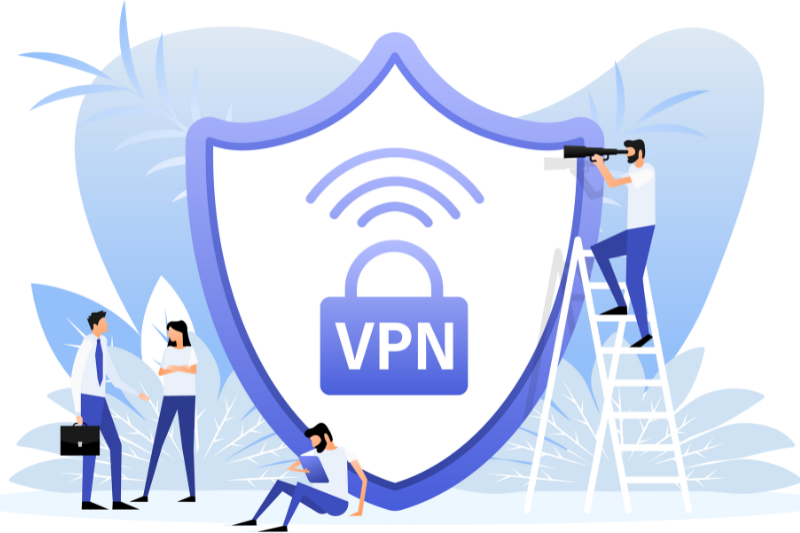What is Net neutrality? The ultimate guide (Updated 2025)
Net neutrality is essential for free speech, creating an uncensored digital environment, and ensuring investment in internet infrastructure. However, roughly one-third of all Americans are actually unsure about what net neutrality even is. With this in mind, we’ve created this guide to net neutrality that summarizes what you should know including the pros and cons, how the repeal affects internet users, and how a VPN can help.
Editor’s Note: We value our relationship with our readers, and we strive to earn your trust through transparency and integrity. We are in the same ownership group as some of the industry-leading products reviewed on this site: ExpressVPN, Cyberghost, Private Internet Access, and Intego. However, this does not affect our review process, as we adhere to a strict testing methodology.
What is Net Neutrality?
Net neutrality is the principle that all online data should be treated the same way.
The concept is that ISPs shouldn’t discriminate against internet users by charging different rates or throttling bandwidth due to the websites they access, their locations, the type of content they access, and other factors.
With net neutrality rules, governments can regulate the ISPs, so they can’t slide some data into “fast lanes” while blocking access to sites like Netflix, or other streaming services.
What Countries Have Net Neutrality?
Different countries see the concept of net neutrality in their own way. Some countries have passed regulations that prevent ISPs from discrimination against internet users. Here is a list of countries that have rules relating to net neutrality as well as whether those rules are enforced:
| Country | Status |
|---|---|
| Argentina | Not enforced |
| Australia | Not enforced |
| Belgium | Enforced |
| Brazil | Enforced |
| Canada | Enforced |
| Chile | Not enforced |
| China | Not enforced |
| India | Enforced |
| Indonesia | Not enforced |
| Israel | Enforced |
| Japan | Enforced |
| Mexico | Enforced |
| Netherlands | Enforced |
| New Zealand | Not enforced |
| Russia | Enforced |
| Slovenia | Enforced |
| South Korea | Enforced |
| Sri Lanka | Not enforced |
| Switzerland | Enforced |
| United Kingdom | Enforced |
| United States | Not enforced |
| Uruguay | Not enforced |
Other countries, like Singapore and Indonesia, have taken steps against net neutrality, banning foreign international services to favor regional counterparts.
What’s Happening with Net Neutrality Rules
There has been a lot of change related to online freedoms in the US over the past decade. Here’s our guide to net neutrality in the US as it stands right now:
In 2015, the then Democrat-led FCC reclassified ISPs so they would have to adhere to the same regulations as telephone networks. This was necessary to establish the legal basis of the net neutrality rules. However, it resulted in a huge backlash from Republicans.
In 2017, the Republican-led FCC voted to repeal the rules in a 3-2 decision. The FCC Chairman criticized the regulations, claiming they were “a mistake” and “heavy-handed.” He argued that these rules stifled investment and hindered innovation.
In 2021, President Biden signed an executive order that encouraged the FCC to reinstate the rules adopted in 2015. Then, in April 2024, the FCC voted in favor of reintroducing the regulations. However, a US appeals court blocked this decision in late July 2024 on the grounds that broadband providers would be likely to succeed in a legal challenge.
Net Neutrality Pros and Cons
As with any other principle, there are plenty of net neutrality pros and cons that we need to consider. Let’s take a closer look and a few of the advantages and disadvantages of having a more free internet.
The Pros of Net Neutrality
1. Protecting Digital Rights and Freedoms
Net neutrality encourages freedom of speech and prevents major ISPs possessing too much power over the media and stifling independent content. With the repeal of net neutrality in the US, it’s possible for ISPs to control data and limit or block access to content.
If we let cable companies offer two speeds of service, they won’t be Usain Bolt and Usain Bolt on a motorbike. They will be Usain Bolt, and Usain bolted to an anchor.
– John Oliver
Your ability to access a website depends on your desire to access the website and not the deals that the intermediaries have made with each other.
– Cindy Cohn
2. Promoting competition and innovation
With ISPs unable to control the flow of data or charge higher fees for priority services, the internet is more open to entrepreneurs and innovative ideas.
3. Preventing Pseudo-Services
In 2014, Netflix announced that they paid Comcast and Verizon extra to avoid bandwidth throttling. This raises the fear that, rather than R&D investments, ISPs will leverage their quality of service and demand payments to refrain from bandwidth throttling.
4. Supporting Small Businesses
As internet users prefer responsive websites, just a single second delay can cause them to lose interest. Here, bandwidth discrimination by ISPs can damage businesses. For example, if small businesses’ sites don’t load as fast as larger competitors’, they could suffer.
The Cons of Net Neutrality
1. Investment Cutbacks
ISPs have argued against the net neutrality rules claiming they take away their ability to better monetize business, driving away investors. Their reasoning is that, in the long term, net neutrality will impede development and damage networks.
2. Unnecessary Regulations
Some opponents of net neutrality rules consider them “overkill,” claiming that, “the internet has [previously] functioned well” without it. The argument here is that government regulations would only hinder innovation.
My concern is that, by imposing those heavy-handed economic regulations on Internet service providers big and small, we could end up disincentivizing companies from wanting to build out Internet access to a lot of parts of the country, in low-income, urban and rural areas, for example.
– Ajit Pai
3. Preventing Price Surges
Former Chairman of the FCC Ajit Pai has stated that, according to ISPs, “regulatory intrusion into our businesses… would likely force us to raise prices, delay deployment expansion, or both” and “will badly strain our limited resources.”
A VPN for Net Neutrality: Does It Work?
There are many uses for a VPN, and supporting net neutrality is one of the most important. With a VPN service, you can alter your IP address and encrypt your data.
ISPs won’t be able to track your online activity while connected to a VPN, so you can avoid censorship, discrimination, and bandwidth throttling due to your online activities. The content you view can’t be restricted and you’re free to browse most sites without incurring any problems.
Overall, we stand behind the principle of net neutrality. While ISPs have investment issues regarding net neutrality, the solution shouldn’t impact internet users negatively.
Previous incidents have shown internet providers, like Verizon and Comcast, may not be entirely ethical, highlighting the need for regulations within the industry. Fortunately, a VPN can help reinforce net neutrality as legislation catches up.
Here`s our top recommended VPNs in 2025
Editor's Note: We value our relationship with our readers, and we strive to earn your trust through transparency and integrity. We are in the same ownership group as some of the industry-leading products reviewed on this site: ExpressVPN, Cyberghost, Private Internet Access, and Intego. However, this does not affect our review process, as we adhere to a strict testing methodology.









Leave a Comment
Cancel